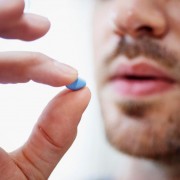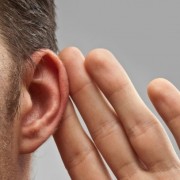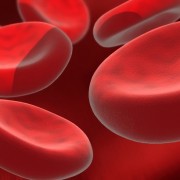The Link Between Erectile Dysfunction and Diabetes
 Erectile dysfunction and diabetes are two health disorders that most adults know a thing or two about, but a recent study may prove that we know too little about the problems and their connection. Erectile dysfunction is known as a sexual dysfunction that affects many adult men, especially as they reach a certain age. Men who experience erectile dysfunction are not able to attain erection or maintain it during sexual activity. This kind of problem can be extremely stressful for men because they often feel inadequate and shameful about their activity in the bedroom.
Erectile dysfunction and diabetes are two health disorders that most adults know a thing or two about, but a recent study may prove that we know too little about the problems and their connection. Erectile dysfunction is known as a sexual dysfunction that affects many adult men, especially as they reach a certain age. Men who experience erectile dysfunction are not able to attain erection or maintain it during sexual activity. This kind of problem can be extremely stressful for men because they often feel inadequate and shameful about their activity in the bedroom.
Though obesity is not a sexual dysfunction, it is also stigmatized in society, because the recurring stereotype lies in the belief that only obese people and excessive eaters get diabetes. In reality, diet is not the only thing that influences diabetes, as there are many other genetic, lifestyle, and individual health factors that may cause it to occur. In many ways, diabetes is much more dangerous than erectile dysfunction because it’s long-term symptoms are dangerous to health, possibly including heart problems like heart disease, stroke, and heart attack. Just by reading these descriptions, you probably would not think that the two conditions are linked in any way, but a study conducted by Dr. Skeldon and his team at the University of Toronto should shed some light on this strange connection.
The study conducted by Dr. Sheldon was not live with hired patients, but it included lots of collected patient data and analysis. The first thing the research team investigated was the prevalence of diabetes amongst patients with erectile dysfunction. What they found was that one in fifty men was likely to suffer from undiagnosed diabetes, but for men with erectile dysfunction, this ratio jumped up to one in ten men. The group whose data was sampled included over 4,500 men who had submitted health data and self-reports during a national health survey taken in 2004. They were all above 20 years of age, putting them in the age range of typical erectile dysfunction patients.the study also focused on the link between erectile dysfunction and high cholesterol and hypertension, but nothing conclusive was found, bringing the spotlight back to the unique case of type-2 diabetes. The research also showed that rates of undiagnosed diabetes in men with erectile dysfunction nearly double in men above the age of forty.
Although this study does not set a medical or scientific precedent, it clearly indicates a connection between erectile dysfunction and diabetes. Given the well-known symptoms and effects of these illnesses, the best choice to avoid picking them up is treating the condition you are suffering from. For diabetes, the first and the main treatment method should be a healthy lifestyle. Staying fit and shedding excess weight goes a long way towards managing diabetes while maintaining a healthy diet can be just as important. Furthermore, diabetes patients are advised to monitor their blood glucose levels and balance them out if necessary.
Other forms of treatment may include special medication and weight loss surgery. For erectile dysfunction, recommendations are somewhat similar. This condition can sometimes be treated by resolving the health problem that caused erectile dysfunction, but this is not always possible and patients turn to other forms of treatment in most cases. The most popular choice of treatment is the drug Canadian Viagra, which relaxes smooth muscles in the penis and increases blood flow to the area, helping a man achieve an erection. Besides expensive brand-name Viagra sold in pharmacies, many people buy Canadian Viagra, which is generally more affordable and has the same qualities as the original version.










